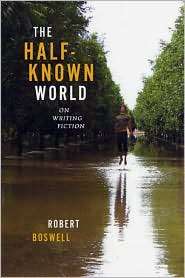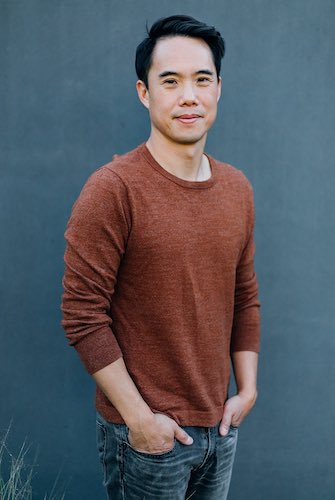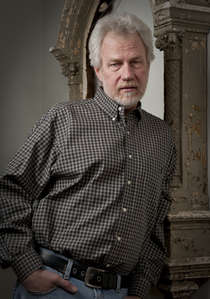 Robert Boswell is the author of five novels and three short story collections, as well as a book on the craft of fiction, The Half-Known World. His most recent short story collection, The Heyday of Insensitive Bastards (Graywolf) was selected in 2009 as one of Oprah Winfrey’s “25 books you can’t put down” in the July issue of O Magazine. His stories have appeared the New Yorker, The Best American Short Stories, O. Henry Prize Stories, Pushcart Prize Stories, Best Stories from the South and other publications. Boswell divides his time among New Mexico, Houston, and Colorado, where he has recently purchased a portion of an abandoned mining town. He plans to renovate certain buildings, including a post office that dates back to the early 1800s, to create a writer’s retreat. Boswell and his wife (Antonya Nelson) share the Cullen Chair in Creative Writing at the University of Houston.
Robert Boswell is the author of five novels and three short story collections, as well as a book on the craft of fiction, The Half-Known World. His most recent short story collection, The Heyday of Insensitive Bastards (Graywolf) was selected in 2009 as one of Oprah Winfrey’s “25 books you can’t put down” in the July issue of O Magazine. His stories have appeared the New Yorker, The Best American Short Stories, O. Henry Prize Stories, Pushcart Prize Stories, Best Stories from the South and other publications. Boswell divides his time among New Mexico, Houston, and Colorado, where he has recently purchased a portion of an abandoned mining town. He plans to renovate certain buildings, including a post office that dates back to the early 1800s, to create a writer’s retreat. Boswell and his wife (Antonya Nelson) share the Cullen Chair in Creative Writing at the University of Houston.
The following interview took place in November 2010, when Robert Boswell visited the University of Michigan to deliver the Jack Laney Fiction Reading.
Interview
Michael Hinken: How did you first become interested in writing?
Robert Boswell: I don’t remember a time when I didn’t want to be a writer.
When I was growing up, my best friend and I both planned to be writers, and when we would play cowboys or army or spies or War Between the States, we would play in chapters. We narrated our own actions endlessly, and I suspect I developed a deep appreciation of irony in the process. We also became experts at the cliffhanger chapter ending.
On my father’s side of the family, there are a lot of great storytellers, and whenever the extended family would gather, the main activities for the adults were drinking and trading stories. My dad and his brother were especially good storytellers. Both had served in the Second World War, and they often spoke about their experiences overseas—typically funny stories. Not always, but their best tales were designed to get laughs. I loved listening to them.
And I loved to read, of course. I fell in love with imaginary worlds when I was really young.
What books made an impression on you at that age?
I grew up reading the Hardy Boys and baseball novels, books of that sort. Everything changed when I read Huckleberry Finn. I was born in Missouri, but raised in Western Kentucky, on a farm outside of the tiny little town of Wickliffe, where the Mississippi and Ohio rivers meet, right where Huck and Jim missed their turn. When I read Huckleberry Finn for the first time, my family had recently moved to Arizona and I was powerfully called back to that earlier landscape and the grandeur of the Mississippi River. The book seemed to be summoning my own history at the same time that it was transporting me to a different time. Huckleberry Finn changed my life. Until I read that book, I had no concept of literature. I began to understand—without being able to articulate it—that I was entering new territory. The words looked the same on the page, but reading the words was not at all the same experience. It was thrilling. And it ruined forever the Hardy Boys.
I could see how it would. With your roots in Kentucky, do you think of yourself as a regional writer in any way? Does that influence your writing?
I’m from the same part of Kentucky as Bobbie Ann Mason, and she began publishing her wonderful stories set there while I was in graduate school. I read “Shiloh” and the other stories and realized that she had claimed that part of the world pretty effectively. I don’t know Western Kentucky the way Bobbie Ann Mason knows it. I know my childhood and write from that, but I don’t know contemporary Wickliffe and Paducah and Bardwell—the little towns where I grew up. Moreover, I had made a conscious decision not to write in what my teachers called the Southern tradition. I loved Faulkner and Flannery O’Connor and Eudora Welty, but I thought that the tradition cast too great a shadow. I didn’t want to work in the shade of those giants.
We moved from Kentucky when I was in the fourth grade. I’ve lived all over the country since then, a little bit here, a little there. I’ve spent a lot of time in the West and Midwest, and so, no, there is no specific landscape I turn to every time, and there’s no region to which I feel special allegiance.
Something about that variety seems to define you as a writer. From what I know of your work, it demonstrates a range of settings, of structure, a range of styles and of interests, which makes you rather difficult to classify. How do you classify yourself as a writer?
The main thing is this: I don’t want to repeat myself. I’m trying to be a literary artist. And, really, who knows what that means? But I’m pretty sure that it means at least this: you don’t settle for anything but the very best you’re capable of doing. For me, that means pushing my narratives to be different, insisting that I try something new, working to explore familiar territories in new ways and to invent new forms each time I sit down to write.
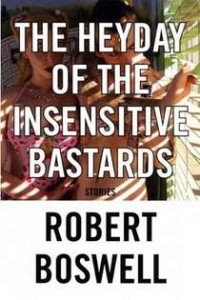 What you say about inventing new forms makes sense, especially looking at a few stories from The Heyday of Insensitive Bastards. I’m thinking of “No River Wide,” which begins with the line, “Both things first: Greta Steno is two places at once and walking…She is thirty-nine and forty-two years old.” Or take the title story from the collection, which is structured around a series of questions in a parole application. I’m wondering, do you think of a structure first and that’s what inspires a story, or do you find the structure of a story in the middle of the writing process?
What you say about inventing new forms makes sense, especially looking at a few stories from The Heyday of Insensitive Bastards. I’m thinking of “No River Wide,” which begins with the line, “Both things first: Greta Steno is two places at once and walking…She is thirty-nine and forty-two years old.” Or take the title story from the collection, which is structured around a series of questions in a parole application. I’m wondering, do you think of a structure first and that’s what inspires a story, or do you find the structure of a story in the middle of the writing process?
The process changes every time. Sometimes I’ll start a story with a structure in mind, but rarely does that structure hold all the way through. Usually I have to give up that initial structure and go with what has emerged. Writing is a mysterious process that involves inventing an imaginary world and then immersing yourself in it to see what’s there, hoping you’ll be surprised. For people who aren’t writers, this process probably sounds ridiculous and contradictory—and both of those things are true, I guess. But it’s the primary way I know to write. I should add, though, that I write by means of many different methods. But the process I just described is what works for me most of the time.
Could you talk some more about your process?
I revise a lot. I write thirty, forty, fifty drafts of every story. There are a few, a very few, exceptions. Every now and then I just scribble down a story and I’m done with it. That has happened maybe three or four times in my life. And, really, those times make all the rest of my work more difficult.
My revision process characteristically involves the gradual, draft-by-draft casting off of the intellectual ideas that got me going, permitting the narrative to find an independent life of its own. The decisions I make while revising tend to be related to specific matters of craft—investigating a specific character, sharpening dialogue, reworking sentences to make them resonant and pleasing to the ear. If I can write a better sentence, I’ll do so even if the revised sentence changes something essential in the story.
All of which is to say: if I feel constrained by the ideas that produced the particular draft, I will give up those ideas.
Of course, I save every draft. They’re all floating there in my computer like little life rafts. It’s rare that I go back to an earlier draft, but having them there permits me to attempt wild revisions.
Back to “No River Wide” and its parallel time structure—could you talk about how that developed? Did it emerge in the process of drafting, or was it something you started with an intellectual idea?
I worked on that particular story off and on for fourteen years. I started with a few intellectual ideas, one of which had to do with shape: I wanted to write about a gathering, and I wanted to let the gathering inform the narrative shape.
The other idea concerned plot. I believe that there are times when a third party can be a stabilizing influence in romantic relationships. We often think something like that about people with children—the child saved the marriage. But it seems to me that a friendship may do the same thing. Friendship, by the way, is an interesting and often overlooked topic for short fiction.
Really? How so?
Friends matter. I think it’s hard to write seriously about friendship, partly because Hollywood has made the buddy movie into a genre. One has to resist the genre and the expectations of that genre while working to get at something true. Tough work. But it seems to me that friendships that endure are as interesting and mysterious as marriages, but we write about them much less often. Christopher McIlroy has a really good story shaped by friendship called “The March of the Toys.” It’s in his collection of stories All My Relations, a really marvelous book.
Interesting. So, back to “No River Wide.”
My idea was to write about two couples who were very close—not only the husbands and wives, but the kids, as well. In my original concept of the story, one family has to move away and both marriages subsequently fall apart. That was my intellectual idea. And I wanted to set the story at a point where the two women are trying to reclaim their friendship after several years of being apart. Their marriages are gone, their kids are mostly grown, and they’re asking, “Can’t we still have this? Can’t we still be friends?” Through the process of writing and exploring this idea, I discovered that, no, the two women had been part of a larger group and individually they couldn’t reclaim what they’d had before.
So I wrote that story and rewrote it and rewrote it and rewrote it. I sent the story around to some friends, got responses. (I’m married to a writer—Antonya Nelson—and she’s typically my first reader.) Eventually I got the story to the point where I was pretty sure I could publish it. But that’s not the point that interests me. The point that interests me is the one at which I make some kind of discovery that takes me beyond what I could have anticipated when I began writing it. I held onto this story for a long time. I kept going back to work on it again and again, but what finally I understood was that I needed to do something extreme to unlock the story.
What do you mean by that, exactly?
I call it setting off a bomb in the story. I have to do something that makes the tenets by which the story lives no longer viable. In this case, I decided that one of the couples moves and gets a divorce, but for the second couple the husband dies. Now my initial intellectual concept is out the window. The story’s guiding principle is gone. The characters are still there, the narrative is still there, the people are still alive to me in some authentic way, but what I thought was the story was about no longer pertains.
After setting off that bomb, I worked on the story for another six years. I can’t remember every step, but somewhere in all the drafting this character AJ emerged, and there is an episode with a snake in a tree. When I was a boy in Western Kentucky, I had a number of episodes with snakes and other wildlife. I remember my big brother shooting a snake out of a tree, and the snake falling through the branches and landing closer to me than I wanted. Suddenly that episode became a scene in the story, and I wanted to keep it but I also wanted the story to be set at the gathering. I had this contradiction in my narrative: How do I have both things at once? And I thought, if that’s what I want, I should make it possible. I decided to open the story by stating that all of the events were happening at the same time.
Wow, that seems quite an act of faith. It’s remarkable that you didn’t give up, or say to yourself that this story just isn’t coming together.
Oh, I gave up several times. But I kept coming back to it anyway. One thing that allows me to keep working is my drafting process. I call each new pass through the story a transitional draft because it is only supposed to take me to the next draft. If I recognize a problem in the story that I don’t yet know how to address, I just leave it, knowing that I’ll continue coming back to it until some kind of answer presents itself. Here’s an advantage of transitional drafts: you’ve always got something to work on. Another: there is no reason to ever throw anything away.
Could you explain the concept of transitional drafts in more detail?
Let’s say you go to workshop and you get useful comments on your stories, ten really good suggestions, and you go home and say to yourself, “I’ve got these great responses from my peers, and I’m going to revise this story, send it to the New Yorker, and sit back to wait for fame to come knocking.” Then you sit down to write and you feel paralyzed. This is a feeling that every writer in the world recognizes. And the reason for it is actually obvious: you can’t do ten things at once.
My advice is this: listen closely in workshop, take notes, write down everything everyone says, including the stuff that sounds completely off base. When you get home, rewrite the pieces of advice, making a hierarchy from easiest to address to the difficult to address. For example, maybe someone says that the dialogue of one of your characters is flat. That’s easy to address and is at the top of your list. You then work through an entire draft devoted to nothing but enlivening that character’s speech. That’s easy to approach, and when you finish that quick draft, you go on to the next thing on the list.
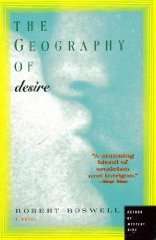

And as long as you have approachable tasks, you will never get writer’s block. We’re pretty much the only profession that has a term for not being able to work. That’s because it’s so common. In fact, most of my teachers—I’ve kept up with several of them over the years—have gone through periods (some as long as ten years) when they simply could not write. Probably every writer you know has had some period like that. So I work to avoid writer’s block, and so far I’ve had good luck. I think the reason for this success is that I work by means of transitional drafts.
Anyway, let’s say you write a draft in which you only work on one character’s dialogue, and then you go back and see another comment that says you’re not taking advantage of the story’s location or landscape. Maybe you say, “I really don’t think place matters, but I’ll write a draft to see if I can kind of tune it up.” You write another draft, work through that, and you’ve got five or six fairly small things of this nature to address. Before you know it, you’ve completed a handful of drafts. By the time you’re ready to work on the more difficult things, you’re much deeper into the story. And more important: when you changed one character’s dialogue in draft one, you probably had to change other things in the scene, such as how other characters responded to that person. Typically, by the time you get to the more difficult issues, you have already started to address them. That narrative part of your brain has already started feeding you ideas.
One of the things I always point out is that this is not a method that will get you in MENSA. Having to write fifty drafts to get a decent story is not a sign of genius. Me, I can live with that. Attempting to create literature is an enormous task and the only way I can approach it is through the humblest of methods.
It strikes me that the drafting process you described goes against my instinct as a writer. I would want to address the larger issues first.
I often advise students to simply go back to a draft and try to write better sentences. For example, let’s say a draft’s first sentence is, “It was a dark and stormy night.” If you go back in to write a better sentence, what you might wind up with is “Lightning struck the fencepost.” That’s more specific, it says a little something about the landscape, and now you have a charred fencepost in the story—which may turn out to be the most important image in your story, and you only got it by trying to write a better sentence. The narrative part of your brain wants to help you, but it usually has to do it indirectly.
As we write, we have to switch back and forth between the narrative side of the brain and the linear side. You have to find ways to turn off that linear bossy voice and let the narrative voice surface.
To expand on the linear versus the narrative aspects of the brain, you write in The Half-Known World that “there must be some dimension of the fictional reality that escapes comprehension.” The way I interpret that is that there has to be some mystery lurking in the story, something that prohibits you from re-capturing the essence of a story in a linear fashion, or paraphrasing it, which implies that there is something larger and almost magical moving through an effective story. I’d like to know your interpretation of that—this half-known world that evades rational comprehension.
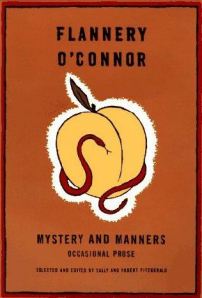 Flannery O’Connor makes the argument in Mystery and Manners that the short story is a complete dramatic action that makes contact with mystery. That’s the best definition of a story that I know. At the same time, a lot of questions remain. For example, what is “a complete dramatic action”? And what does it mean that it “makes contact with mystery”? I can’t answer those questions, but I can say this: I know that in what we call real life, I may feel that as I’m sitting here talking to you I start to get a sense of who you are, but I’m also aware that that sense is predicated upon who you want me to think you are and the particular role you’re playing today, and the limitations of our acquaintance, and so on. But even people who know you intimately may nonetheless be surprised by something that you do, may feel betrayed by something that you say. Part of what makes life compelling is that it’s impossible to fully know another person. And we write about that all the time. It seems to me that the best fiction always finds some way of capturing that sense of not-knowing, not fully knowing, of only half-knowing.
Flannery O’Connor makes the argument in Mystery and Manners that the short story is a complete dramatic action that makes contact with mystery. That’s the best definition of a story that I know. At the same time, a lot of questions remain. For example, what is “a complete dramatic action”? And what does it mean that it “makes contact with mystery”? I can’t answer those questions, but I can say this: I know that in what we call real life, I may feel that as I’m sitting here talking to you I start to get a sense of who you are, but I’m also aware that that sense is predicated upon who you want me to think you are and the particular role you’re playing today, and the limitations of our acquaintance, and so on. But even people who know you intimately may nonetheless be surprised by something that you do, may feel betrayed by something that you say. Part of what makes life compelling is that it’s impossible to fully know another person. And we write about that all the time. It seems to me that the best fiction always finds some way of capturing that sense of not-knowing, not fully knowing, of only half-knowing.
We rarely talk about this in workshop or anywhere else because it’s so abstract. What we talk about instead is how you develop and reveal a character, how you make a character believable. It’s true, you have to do those things in a story, but you also have to suggest that the character is larger and stranger than it’s possible to reveal.
Can you give an example of this?
I just re-read “Bartleby the Scrivener,” which is a lesson in the unknowable character. In that story, the narrator has several reasonable assumptions about his employee, and the reader is guided by those assumptions. One of the ways you achieve mystery is by anticipating the kinds of assumptions a reader will make. Let me see if I can explain what I mean.
Any time we read a story and we see a character do something, we will make certain assumptions and they typically have to do with who we are. When we’re wrong about the character, part of what is being shown is that this character is different from who we are or who we think we are. The character comes into definition in contrast to the reader. As writers then, we have a balancing act, attempting to display the gap between the reader and the character without making it so great that the narrative falls apart.
This example may only make sense to me, but I like to think of the great jazz musicians playing one of the standards, “Stardust,” let’s say, which the listener recognizes and is pleased by that recognition. But the musician becomes inventive with the song, riffing, extemporizing, sometimes moving so far away from the tune as you know it that the whole performance is in jeopardy of losing the thread—the listener can actually feel this tension in his body. The great masters take you far, far away, and when you come back and hear that familiar melody, it makes you aware of how far you’ve traveled, and there’s a sense of coming home. This can be powerfully moving, and when it happens, you know you’re in the hands of a great musician. As writers, we often try to do something like this with the characters, pushing them to the limit of cohesion without quite tipping them over into madness or implausibility. The reader feels that he knows the character while simultaneously understanding the vast gap between the character’s apprehension of the world and his own.
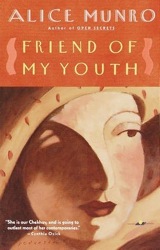 To write effective characters, you have to think about how the reader will recognize a character and then how the reader will anticipate the character’s actions. It stands to reason, then, that a number of great stories are not about revealing the character but revealing the reader. Take “Billy Budd,” for instance, or “Bartleby”—Melville was a master of this. A great contemporary example is the story “Friend of My Youth” by Alice Munro. You can read that story for the rest of your life; it changes as you change.
To write effective characters, you have to think about how the reader will recognize a character and then how the reader will anticipate the character’s actions. It stands to reason, then, that a number of great stories are not about revealing the character but revealing the reader. Take “Billy Budd,” for instance, or “Bartleby”—Melville was a master of this. A great contemporary example is the story “Friend of My Youth” by Alice Munro. You can read that story for the rest of your life; it changes as you change.
I wanted to ask you about being married to a fiction writer. You mentioned that your wife, Antonya, is often your first reader. I’m guessing you read her drafts, too? How do you work together as readers?
We read each other’s work all of the time. I am her first reader and she is mine. In terms of process, we’re very different writers. As I’ve made clear, I labor through many drafts. What I initially show her is usually about halfway through my eventual process. She mulls over stories, and she doesn’t need to write nearly as many drafts. Her stories are usually almost finished by the time I see them.
In terms of marital harmony, it’s good that we’ve both had some success. We pull for each other to write well and for the work to be well received. Neither of us sees it as a competition, but it would have been difficult, I think, if one had been lucky and the other had not.
As a writer of stories and novels, not to mention plays and nonfiction and a book on craft, your range is impressive. I guess that goes to your desire to avoid repeating yourself, as we discussed in the context of how you approach your short stories. I’m wondering about the difference between writing stories and novels. How do you know when an idea fits as a story, when as a novel?
I don’t really decide, the fiction decides. I’m writing two novels right now. I’ve been working on one of them for several years, and the other started last fall as a story, and it just took off. I more or less ran after the narrative. I do not recommend writing two novels at once, as it will make you a little crazy. However, as long as I’m writing I’m doing okay. I like to work. The great advantage to writing stories is that they’re short enough to hold in your head all at once. You can revise them in a single day. Novels require long-term commitment, the willingness to turn over years of your life to a project that may fail. If you’re a novelist, life is short.
Further Links and Resources
– His story “The Holy Stall,” at FiveChapters.
– An excerpt from The Half-Known World at Graywolf Press.
– An excerpt from “No River Wide” – also from Graywolf Press.
– His story “Sleeping In Bars,” at Freight Stories
Robert Boswell in Berkeley from Al Martinez on Vimeo.
Robert Boswell on his short story ‘Guests’ from Al Martinez on Vimeo.




